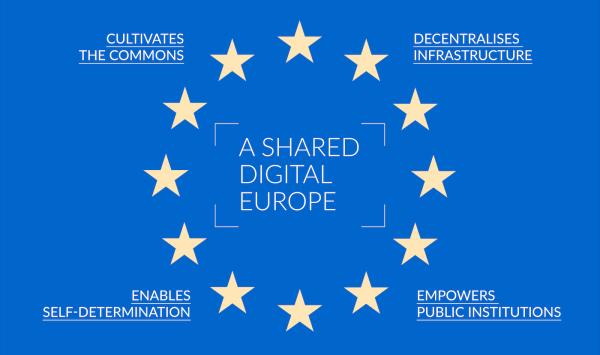Nine european data spaces to keep an eye on
Further EU integration will happen through data. Lots of data.

One week ago the European Commission communicated, as part of an European strategy for data, its support for the establishment of nine Common European data spaces, in the nine crucial sectors listed below. The sectors are such that they will move huge sums of money, and shape all of the European Union in the next years, so everybody should know what they are. Here they are, some with links to some humble proposals and thoughts of mine, on the same subjects:
- Industrial (manufacturing), to support the competitiveness and performance of the EU’s industry, allowing to capture the potential value of use of non-personal data in manufacturing (on gaps between manufacturing and reality)
- Green Deal, to use the major potential of data in support of the Green Deal priority actions on climate change, circular economy, zero-pollution, biodiversity, deforestation and compliance assurance.
- Mobility, to position Europe at the forefront of the development of an intelligent transport system, including connected cars as well as other modes of transport (smart pods and SOMTs right, left and center!)
- Health,for preventing, detecting and curing diseases as well as for… accessibility, effectiveness and sustainability of the healthcare systems (who deserves welfare, or dying in front of other humans?)
- Financial, to stimulate, through enhanced data sharing, innovation, market transparency, sustainable finance… (on “open” banking…)
- Energy, as this would facilitate innovative solutions and support the decarbonisation of the energy system (of nuclear vs renewables)
- Agriculture, to enhance the sustainability performance and competitiveness of the agricultural sector through the processing and analysis of production and other data… (open innovation in agriculture, please!)
- Public administration, to improve transparency and accountability of public spending and spending quality, fighting corruption, both at EU and national level… Open Data, Open Society. Of course!)
- Skills, to reduce the skills mismatches between the education and training system on the one hand and the labour market needs on the other (because automation is no problem for skilled workers. Sure)
Who writes this, why, and how to help
I am Marco Fioretti, tech writer and aspiring polymath doing human-digital research and popularization.
I do it because YOUR civil rights and the quality of YOUR life depend every year more on how software is used AROUND you.
To this end, I have already shared more than a million words on this blog, without any paywall or user tracking, and am sharing the next million through a newsletter, also without any paywall.
The more direct support I get, the more I can continue to inform for free parents, teachers, decision makers, and everybody else who should know more stuff like this. You can support me with paid subscriptions to my newsletter, donations via PayPal (mfioretti@nexaima.net) or LiberaPay, or in any of the other ways listed here.THANKS for your support!